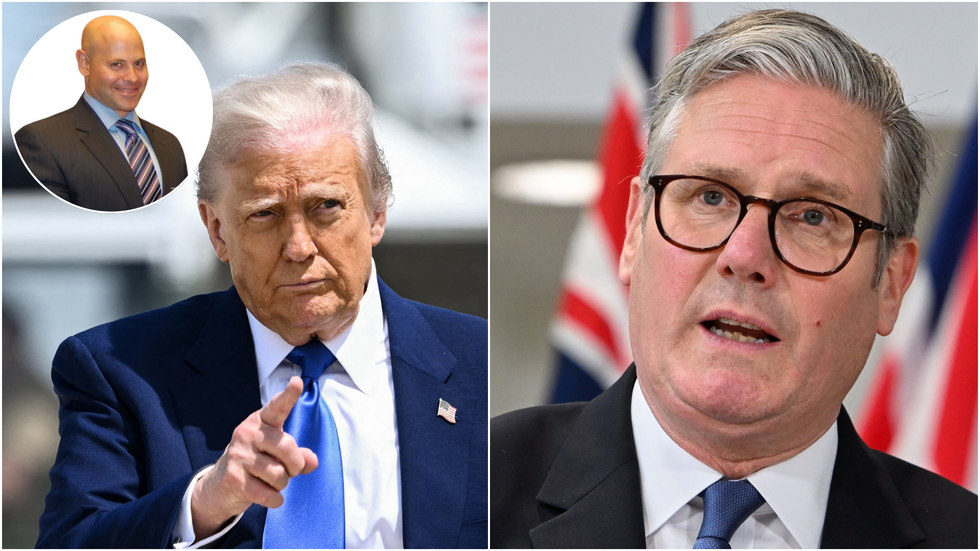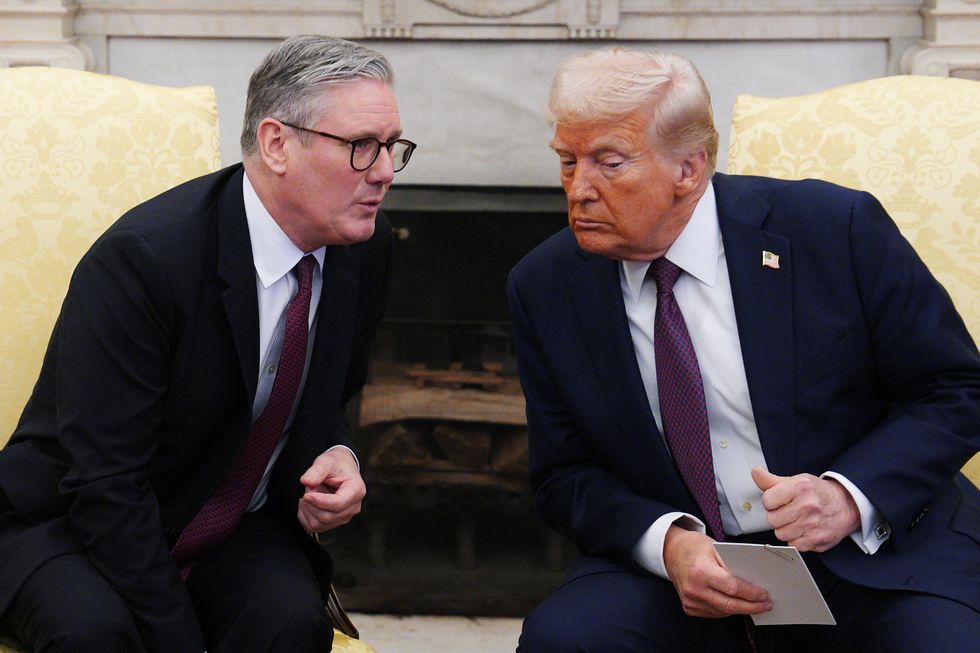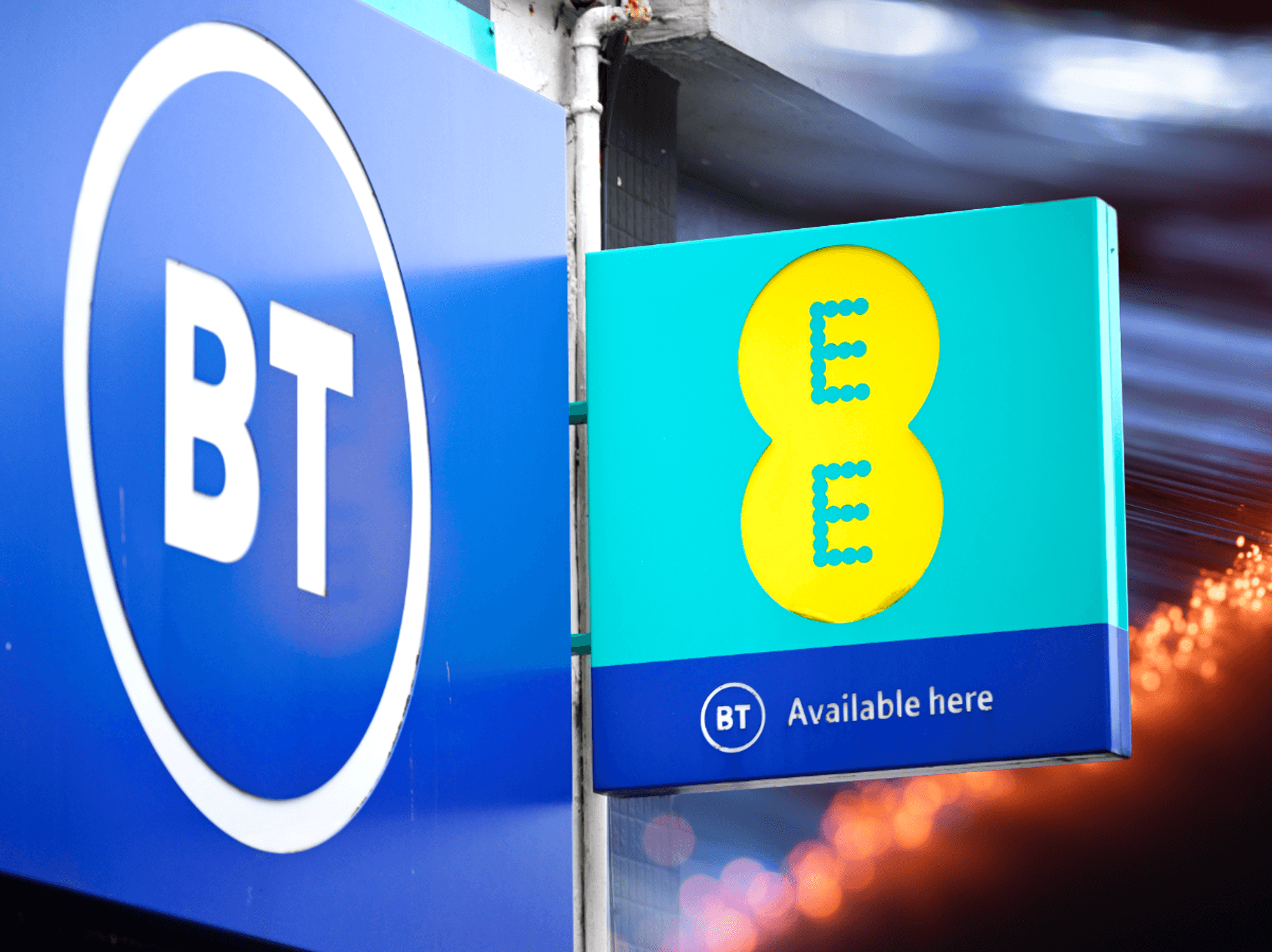Starmer’s EU pact betrays Britain and torches Trump’s goodwill - Lee Cohen

Nick Thomas-Symonds refutes suggestions Labour are taking UK back into the EU |
GB News
OPINION: Keir Starmer’s push to align with Brussels is seen as a step back from Brexit, straining relations with Washington and sparking domestic backlash, says Lee Cohen.
Don't Miss
Most Read
Trending on GB News
From America’s shores, as in Britain, it's obvious Keir Starmer’s reset deal with the EU is a grotesque betrayal of the British public, spitting in the face of the 2016 Brexit referendum and marking an alarming lurch in the wrong direction. It's a reckless misstep that binds Britain to Brussels’ rules, drains its wealth, harms its heartlands and fishermen, lies about border control, and could provoke a tariff-prone Donald Trump, threatening the U.S.-UK trade deal. This isn’t mere policy—it’s a betrayal of the British people who voted to reclaim their nation. Starmer’s deal doesn’t just weaken Brexit; it hands Britain’s freedom to Brussels while poking Trump’s trade temper. There must be noisy public pushback against this catastrophe, as Britons watch their country slide back into Brussels’ control and America’s disfavour.
The 2016 referendum demanded control over laws, borders, and waters, but Starmer’s deal dismisses that choice. By granting EU fishermen access to British waters until 2038, he yields seas Britons fought for, hitting fishermen hard. Aligning UK laws with EU standards, with talk of European Court of Justice oversight, pulls Britain toward Brussels, eroding independence. The youth mobility scheme, sold as cultural exchange, quietly opens the door to free movement, potentially letting tens of thousands of EU migrants enter, as clear-eyed critics warn, contradicting Starmer’s border control promises. Estimated to cost £16 billion a year, the deal funds a foreign system Britons rejected—a letdown from Cornwall to the Highlands, where even pro-EU Scottish leaders criticised the fishing terms. Farmers struggle under EU rules favouring European rivals, and the Red Wall, Brexit’s stronghold, simmers, ready to punish Labour’s betrayal at the polls—sadly, not soon enough.

Starmer’s EU pact betrays Britain and torches Trump’s goodwill - Lee Cohen
|GB News/Getty Images
From America, Starmer’s EU deal is a dangerous wedge, imperilling UK-US trade and straining a historic bond. The trade deal, signed on May 8, 2025, cut tariffs on thousands of British cars and steel—a step toward deeper ties despite disputes over agriculture and digital taxes. It built on the “special relationship,” a partnership of shared values, from wartime alliances to modern markets. But Starmer’s adoption of EU food and veterinary standards risks unravelling this progress, blocking U.S. exports like hormone-treated beef that Trump’s team demands. These standards, tied to the EU deal, clash with American interests, undermining a deal meant to strengthen both nations. Trump, who sees the EU as a trade rival exploiting U.S. markets, is watching closely. His tougher tariffs on EU imports compared to UK goods signal he’s ready to act if Britain aligns with Brussels. White House sources have warned Starmer to choose—America or the EU—or face consequences such as higher tariffs or stalled talks.
Trump’s stance isn’t just about trade; it’s personal. He holds a special place for Britain, seeing it as a kindred spirit in defying globalist elites. A vocal champion of Brexit, Trump praised the 2016 vote as a bold stand for sovereignty, believing a free Britain would be a stronger partner in the “special relationship.” His critical view of the EU, which he sees as a bureaucratic bully, led him to offer Britain more favourable trade terms than the EU’s—a gesture of goodwill rooted in his admiration for Britain's bold choice to take back control. The May 8 deal, with its tariff cuts, reflected this, even as agriculture remained a sticking point. Starmer’s EU deal, however, is a backward step, a retreat to Brussels’ orbit that Trump could only view as a betrayal of Brexit’s spirit. By aligning with EU standards, Starmer erodes the goodwill Trump extended, risking not just trade terms but the broader trust that underpins UK-US ties. American observers warn this slights the “special relationship,” a bond Britons cherish for its strategic weight.

OPINION: Keir Starmer’s push to align with Brussels is seen as a step back from Brexit, straining relations with Washington and sparking domestic backlash, says Lee Cohen.
|Getty Images
Britain’s global standing is at stake. Starmer’s pivot could isolate the UK, caught between a demanding EU and an irritated Trump. Britons, proud of their role in NATO and global markets, should see this as a threat to their influence. Britain and the USA have traditionally been the closest of allies, enjoying lucrative trading dynamics and robust cooperation on military and intelligence. His administration’s warnings reflect a fear that Britain’s EU ties weaken its independence, making it a less reliable partner. Starmer’s deal, meant to boost trade, risks economic pain if Trump retaliates, hitting British exporters and consumers. For a nation that prides itself on global leadership, this is a grim prospect. Britons deserve a leader who builds on Trump’s affinity for a sovereign UK, not one who squanders it for Brussels’ fleeting gains.
What a pity that in Starmer, Trump finds such a feeble partner—a leader who trades sovereignty for Brussels’ leash rather than seizing the moment for greatness. With a like-minded counterpart—one who puts Britain’s prosperity and security first—the sky would be the limit, with Trump’s Anglophilia and bold vision unlocking boundless potential for the “special relationship.” Instead, Starmer’s folly risks mistrust and alienation of the single momentum that could rescue Britain from its economic stagnation and cultural rot. Britain’s future demands bold leadership, not timid retreat, to restore its global stature and honour Brexit’s potential. Starmer’s surrender offers a stark lesson: only public outrage and, eventually, new leadership can steer Britain to the global position it deserves.
More From GB News










